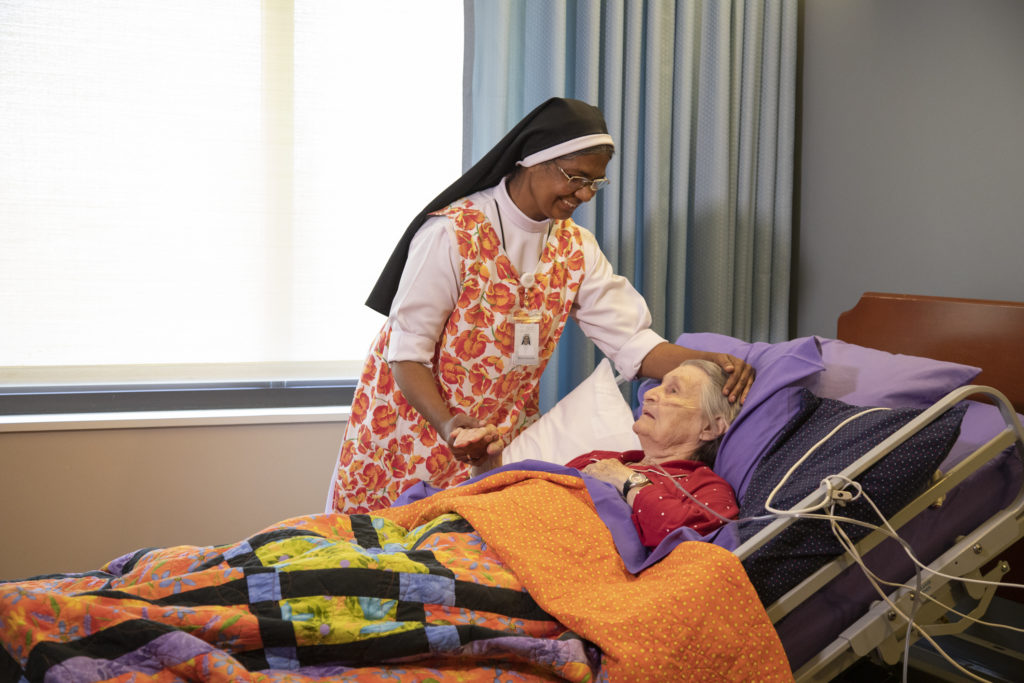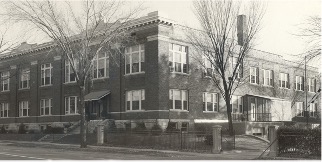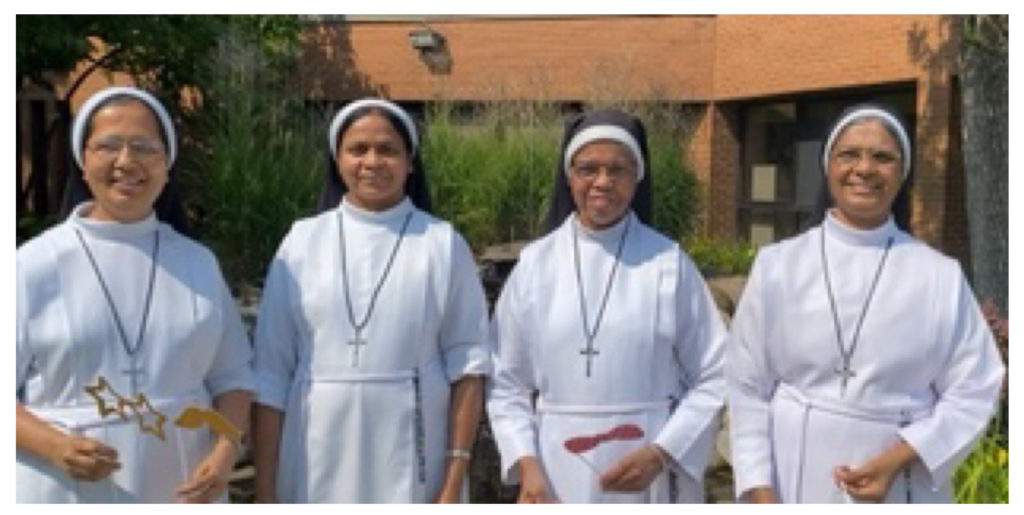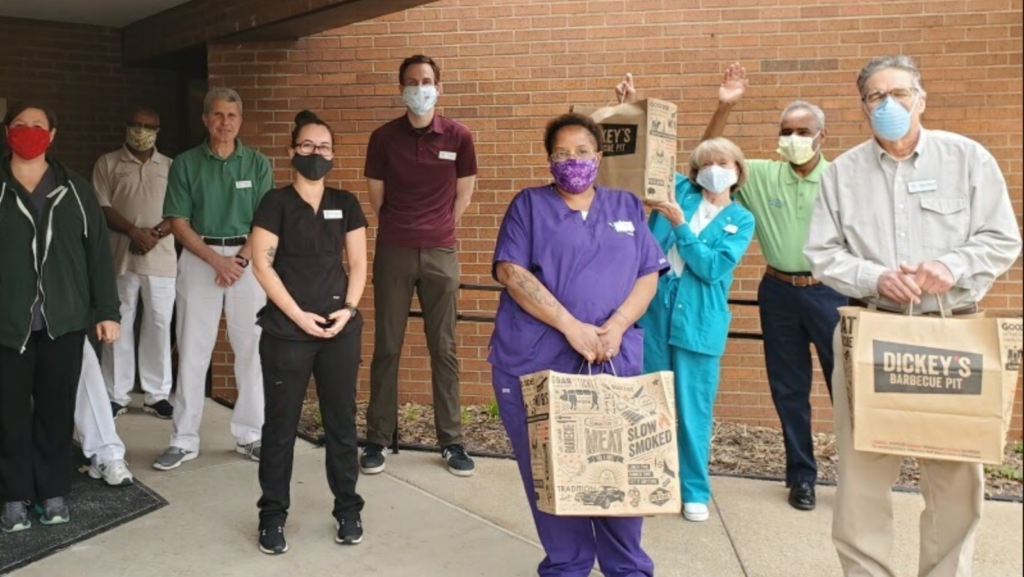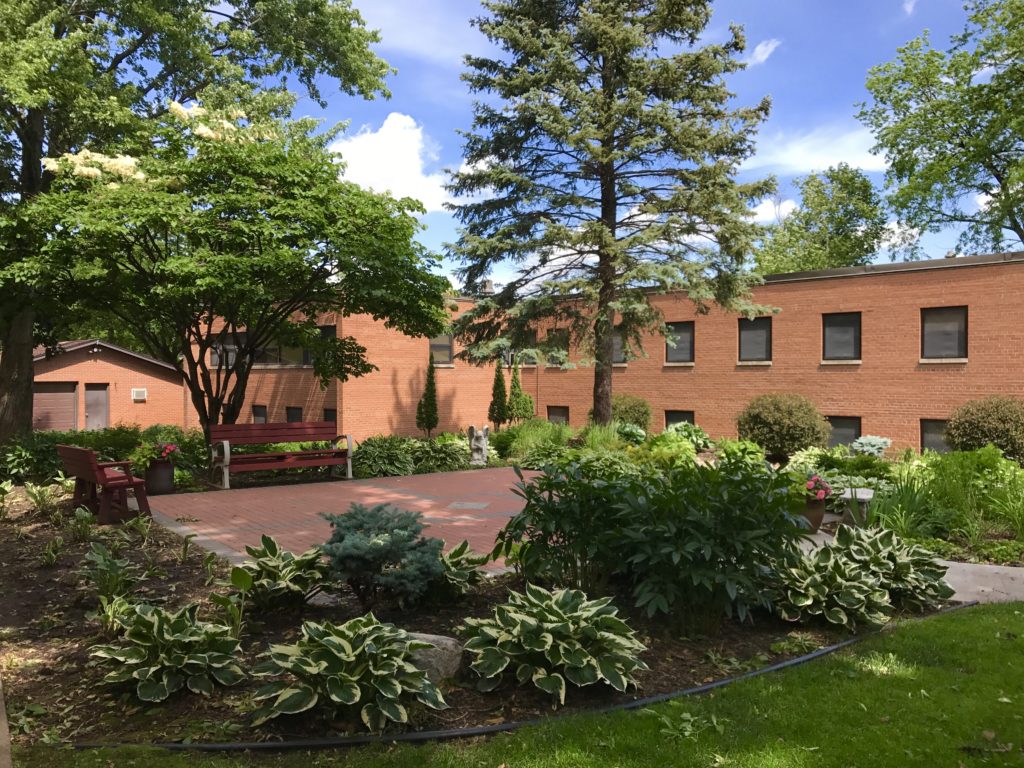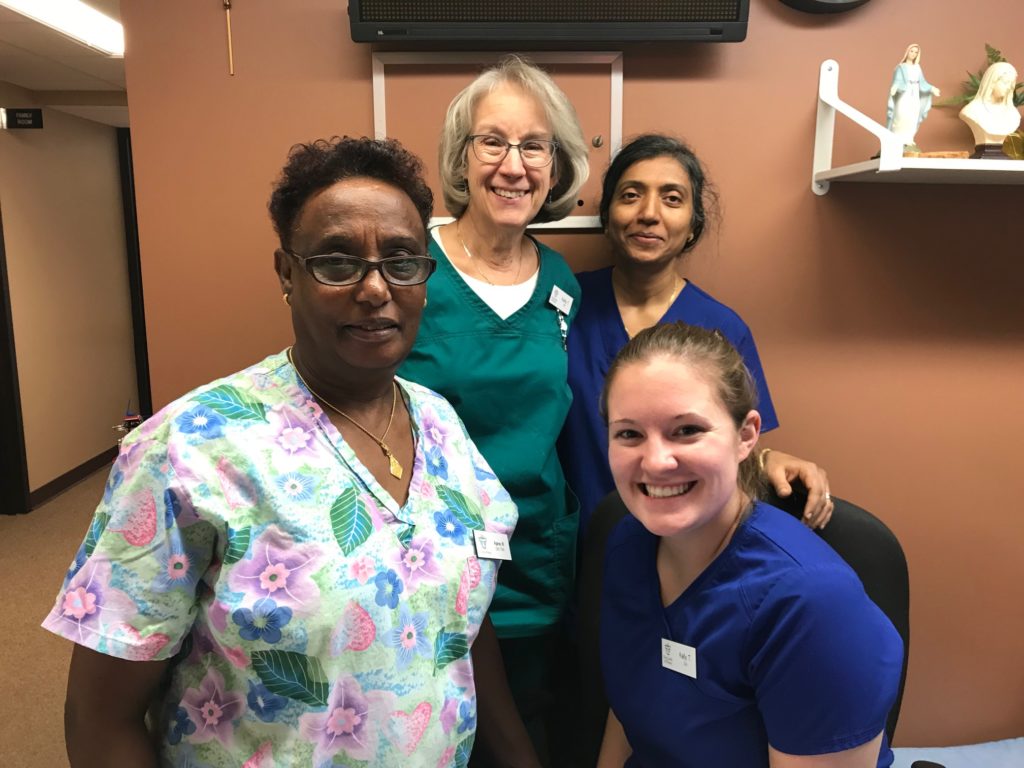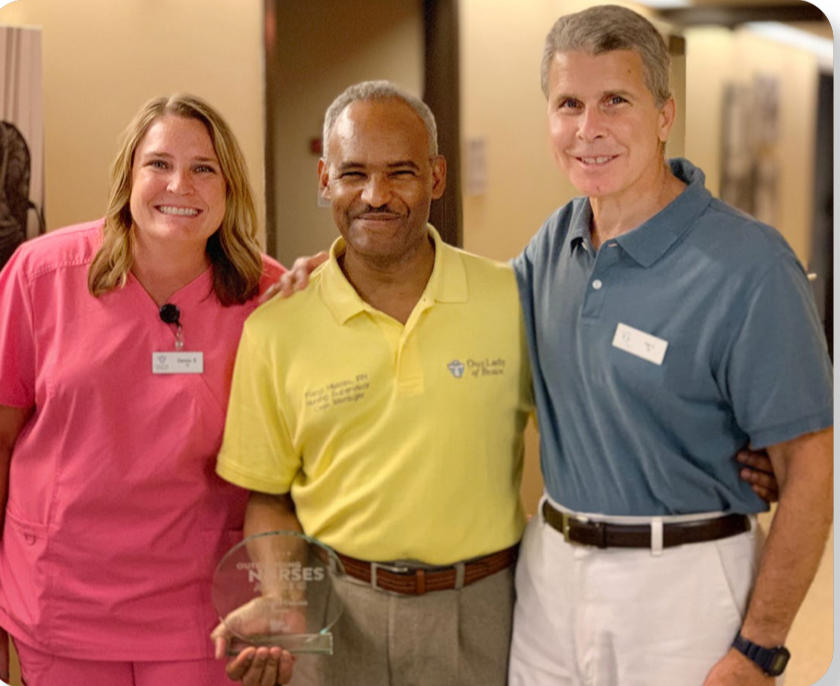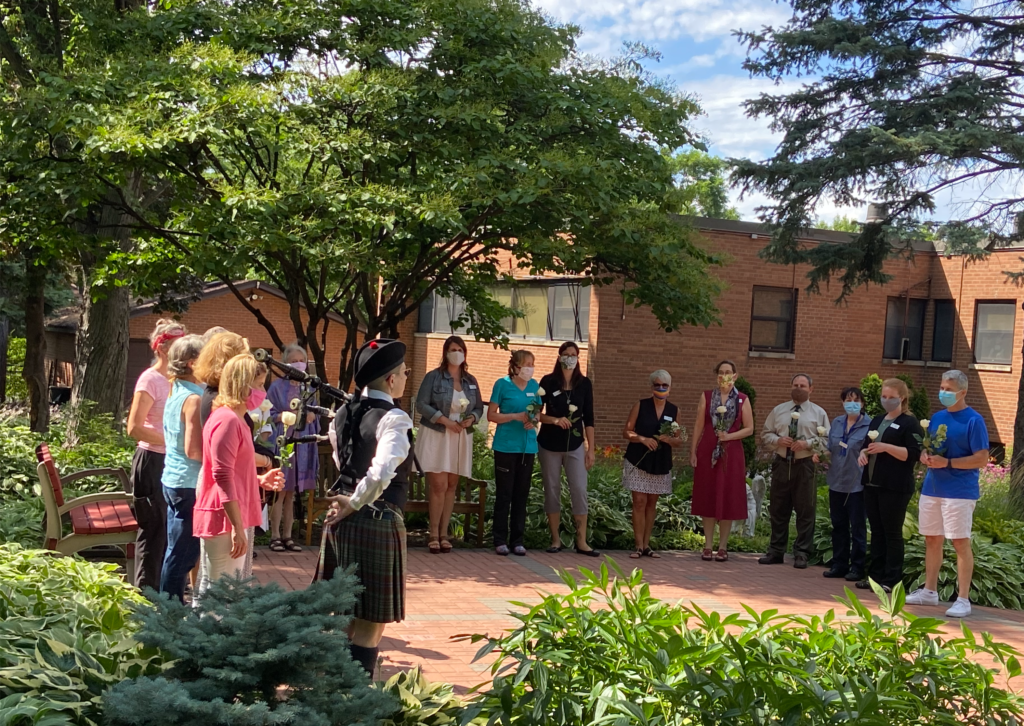On December 7, 1941, as Americans reeled from news of the attack on Pearl Harbor, a small group of Catholic Dominican Hawthorne nuns quietly opened a humble care facility called Our Lady of Good Counsel in Saint Paul, Minnesota. The mission of these dedicated women was to serve “the cancerous poor” — terminally ill patients who could not afford care in other nursing facilities, or could no longer be cared for at home.
Their story begins in the late 1800’s with the vision of Rose Hawthorne Lathrop, daughter of noted American writer, Nathaniel Hawthorne. Rose was born into a life of privilege but in the wake of a difficult marriage and the loss of her only child, converted to Catholicism and committed her life to service. Deeply moved by the plight of indigent cancer patients who were dying in the streets of New York’s Lower East Side, Rose took these suffering people into her own home and cared for them. At the age of 45, she completed nurses training and founded the Dominican Sisters of Hawthorne–also known as the Servants for Relief of Incurable Cancer–a religious order that would open seven hospice facilities in the United States, all united in their unique mission to offer free care.
Our Lady of Good Counsel, known informally as “the Cancer Home,” was housed in the renovated 3-story Tri-State Telephone Building, located on the corner of St. Anthony and Cleveland Avenues. Large open patient wards in the Home were favored by the nuns who believed that the dying should not be isolated or alone. The nine Sisters who lived on site worked tirelessly to care for their patients and families, and with the exception of a weekly visit from a physician, were responsible for all aspects of running the home
In addition to 24-hour nursing care, they did laundry and housekeeping, handled administrative duties, and cooked meals from scratch. Knowing most of their patients had lived in the grip of poverty, the nuns referred to them as “guests” and believed their final days should be free from want and they should have the best of everything. With an unwavering conviction that God would provide, the sisters never asked for money to do this work, and relied on unsolicited donations to support their mission.
In the early days, some of the nuns who came to work at OLGC were already Registered Nurses, others would become nursing assistants, all would eventually become hospice experts, although the term hospice did not enter the popular lexicon until the 1970’s. The special skill of caring for the dying was learned on the job and the knowledge passed from one caregiver to the next.
n 1981, the Tri-State Telephone Building was razed, and a new facility was built in the same location. In 2009, the Sisters turned over operation of the home to the Franciscan Health Community, which continued the original mission of providing care at no cost to those in need. The name was officially changed to Our Lady of Peace in 2011. Further change followed in 2013 when care was expanded to include children with terminal cancer, and again in 2014 when Our Lady of Peace made the decision to extend care to adults with any terminal diagnosis.
Unchanged, however, is the commitment to providing care at no cost and the unique distinction of being the only hospice center in Minnesota, and one of few in the United States, that offers this service. The tradition of nuns as caregivers also continues with the presence of four Franciscan Clarist Sisters who live and work in the Home. In 2021, Our Lady of Peace will celebrate 80 years of providing end-of-life care to thousands of of patients and their families in the Twin Cities.
We want to express our gratitude and love to all families who have been in our care. And, we invite others to experience it within our Residential or Community Hospice & Home health care programs when you or someone you love are in need of compassionate end-of-life care. We plan to be here for decades to come.
Every person leaves their mark, a legacy that lives on long after moving from this world. Our Lady of Peace Hospice & Home Care will be here to provide you support to ensure your loved one can live well…..always
